Support groups for women cancer survivors | by
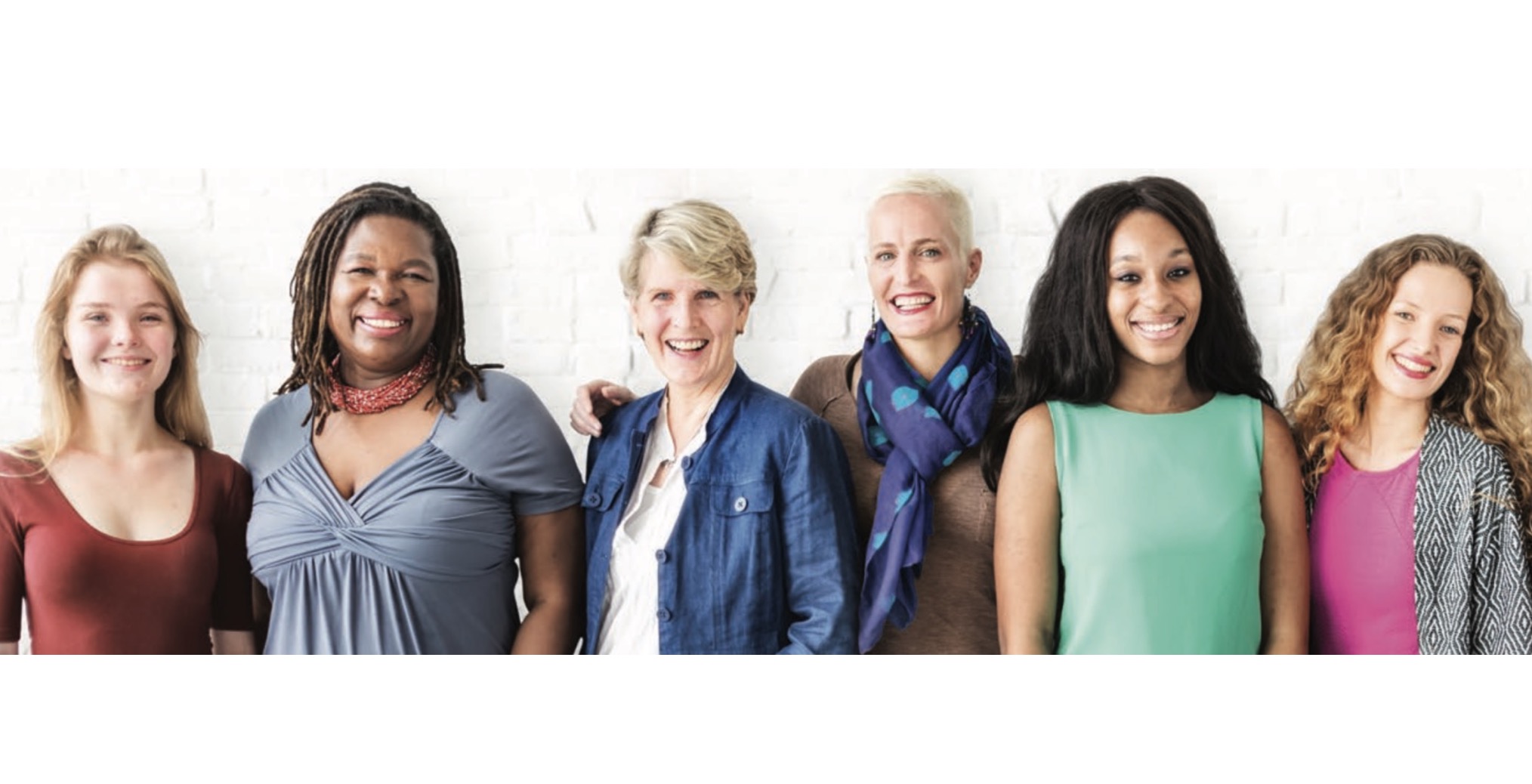
Breast Cancer “Friends for Life” Support Group
Share stories, hopes and fears about our breast cancer experiences and treatment options.
Cherry Hills Community Church
3900 Grace Blvd, Highlands Ranch
303-888-3627
Breast Cancer Support Group
All patients at all stages of treatment and survivorship
Sarah Cannon Cancer Institute at The Medical Center of Aurora
1501 S Potomac St, Room 2, Aurora
303-338-7255
Auroramed.com
Breast Cancer Support Group
Provides emotional and social support for people who have had or currently have breast cancer.
Porter Adventist Hospital
2525 S. Downing, Denver
303-765-3883
Parker Adventist Hospital
9395 Crown Crest Blvd, Pine A Rm, Parker
303-269-4155
Feisty Fit Females
Support group for women cancer survivors
303-798-7614
Life After Breast Cancer
Rocky Mountain Cancer Centers at Sky Ridge Medical Center
10101 RidgeGate Pkwy Lone Tree, Garden Level Boardroom
720-225-2273
sarahcannon.com/asksarah
Ovarian Cancer Group
Tele-Support and groups open to women with all gyn cancers and their caregivers
Nicki’s Circle
720-519-3122, Tele-Support
Littleton Adventist Hospital 7700 S Broadway, Littleton
St. Stephen’s Episcopal Church 1 E Del Mar Cir, Aurora 303-506-7014
BREASTS ARE FUNNY LIKE THAT: HOW LAUGHTER GOT US THROUGH BREAST CANCER, by Wendy Holliday-Bledsoe
“Let them look,” my mother, Edna, said as she fluffed her hair. “Everyone from Texas to Denver has seen them, touched them, and poked them. Let them get one last look before these yard dogs get cut off.” My mother strengthened her pin-up girl pose as she pressed her bare breasts against the windowpane in an exam room of a high-rise medical office building. Unable to coax my mother from the window, I flipped off the onlookers gathering in the windows of the apartment complex directly across from us. Her snot and tears smeared the glass. “Get that off before the doctor comes in.” She laughed, then snorted, which made me laugh, easing our fears. My mother’s new, quirky, sense of humor was like a phoenix rising from the ashes, diminishing the elephant in the room. Laughter was going to save us in the days ahead by alleviating pain, tension, anxiety, depression, and fear of death.
Why did my mother flash an entire apartment complex with her breasts? And why were we laughing about it? The answer is cancer. My name is Wendy, and I am a registered mammography technologist. At the age of sixty-five, my beloved mother, Edna, called and said she had “clacks” in her right breast. I had never heard of “clacks.” This misnomer was High-Grade Ductal Carcinoma in-Situ.
Mother’s breast cancer wasn’t any more unusual than anyone else’s I’d encountered in my field. But there was one exception: this was MY MOM! As a technologist, I felt my family was impervious to this disease. I don’t know why. Call it a “career hall pass.” Breast cancer seemed esoteric until it barged, uninvited, into our lives. The surreal diagnosis was a wake-up call that got me on a plane from Denver, Colorado, to a little town outside of Dallas, Texas, to bring my mother to Denver for treatment. The Big ‘C’ was at my house! The kryptonite to the angst of cancer proved to be copious amounts of diverse humor and change.
During the week of packing, mom and I killed a case of Tropical Fruit Wines. My mom managed to get three sheets to the wind off small sips of constant refills. “I rarely drink,” she said. “Pour me a little sip. Keep going. Keep going.” I saw her dour countenance as she sat at the kitchen table, staring at a wall. Like a tropical rain, she cried hard, quietly, and briefly. After a week in Texas and fourteen hours on a bus, we arrived in Denver. The whirlwind of banter and appointments began.
A group of breast healthcare providers, renowned and respected for their expertise, skill, and continuous research in breast cancer, became “Team Mom,” and my Rock of Gibraltar. In spite of my professional knowledge, I felt like a toddler stranded in a busy intersection. My maternal aunt died of metastatic breast cancer in the 1980s. The thought of my mother dying was agonizing.
The first pre-operative appointment was with the breast surgeon. My mom lay on an exam table, waiting for the doctor. Suddenly, she began doing sit-ups, arms akimbo, legs straight, exhaling loudly, and then inhaling as if she were sucking the paint off the walls. I hid my laughter.
“How did I CATCH breast cancer? I eat right. I exercise. I’m strong. I go to church.” More sit-ups. “I probably got it from that lady in the store, coughing all over the damn place. I haven’t cussed all week.” My mother’s voice quivered with shame. Mixed emotions and laughter overcame us.
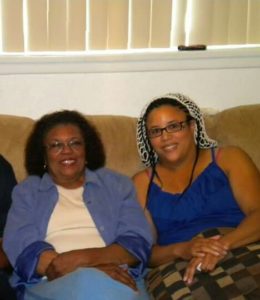
Edna and Wendy
The breast surgeon entered the room. We stood silently, side by side, watching my mother do sit-ups. The doctor reassured me that my mother’s behavior wasn’t uncommon for someone diagnosed with cancer. “Oh, wow, Edna! Look at you go!” The doctor laughed and egged her on; the sit-ups continued with zeal. Sadly, my mother needed a mastectomy. She also opted for breast reconstruction that would be done by a plastic surgeon following the mastectomy. We agreed on a date, and we were off to the oncologist.
The oncologist greeted mom with a hearty handshake. He talked, in great detail, about her diagnosis and possible treatment options depending on the final pathology. Without warning or thought, mom blurted, “Blah, blah, blah.” Her hands dismissed his monotonous jargon. “What are you?”
The doctor cleared his throat and adjusted his tie. “I’m Indian.”
“Woo, woo Indian? Or 7-Eleven Indian? Mom asked.
I had a sudden attack of collywobbles. I’d worked with this doctor for years. Maybe we wouldn’t be friends anymore after mom’s biased remarks. Who was this person inside my mother’s body, oblivious to tackiness and an unbridled tongue?
“I’m from India.” His laughter seemed forced.
“I could throw you over my shoulder and take you home.” My mom leaned in flirtatiously, allowing her leg to brush his leg.
“I’m married.” He gave me a quick nod toward the door. This appointment was over!
An article in WebMD, “Taking Risks after a Cancer Diagnosis,” by Camille Noe Pagan says, “Unexpected behavior is a normal part of the way some people handle their diagnosis.” The author was right. I couldn’t look at my mother as I repeatedly smacked the button to summon the elevator. Her giggling was uncontrollable. My pressed lips eased into laughter, and we hurried down the hallway like teenagers.
Our next pre-op appointment was with the oncology nurse in my mammography department. She answered questions and provided ancillary information and resources that could help with utilities, medication, gas vouchers, support groups, physical therapy, reading material, and more. Mom seemed relieved to know that extra support was available. The oncology nurse used humor cautiously, taking cues from mom’s prate about her emotions and behavior. Radiologist Dr. John Lewin, part of “Team Mom,” says, “Providers need to be very careful with humor.” He added, “However, humor among family is probably necessary to get through the stress.”
Our last appointment was with the plastic surgeon and included the breast flashing incident. The plastic surgeon entered the exam room and stood quietly, staring at my mother’s naked breasts pressed against the windowpane. She gave a wave of dismissal to the crowd waving from their windows in the opposite apartment building. She wrapped mom in a warm blanket then sat her in a chair. “Well, I’ll be,” she said, looking at the window. “That’s got to be the best imprint I’ve ever seen.” On the glass was a detailed impression of mom’s breasts; the nipples, the areolas, and the oval shape. “I’m going to leave it there.” We burst into laughter so loud, other staff members came rushing in and joined in the laughter.
I loved my mother’s way of coping with this trauma. Her comic relief brought down her walls and made her approachable. Laughter propelled us through the exhausting days of uncertainty. We talked candidly and howled with schoolgirl giddiness about her diagnosis and her new boobs. We talked about her sister. And finally, she cried like a tsunami, loud and boisterous, accompanied by tantrums and language that would make the devil gasp. “I don’t want to see myself after the surgery,” she shouted. Mom was a real Betty; she had an hourglass figure, flawless skin, and a nice pair of perky B-cup breasts. She could undoubtedly toot her own horn. “I won’t be a woman. I’ll be a thing, a freak.” She blew her nose several times, adding to the pile of snotty tissues on the floor. “Pour me a small sip of wine. Never mind. I need vodka.” We laughed stridently and drank vodka for many days and nights.
The surgery went well. And we were informed that mom had the muscle mass of an athlete. No surprise there. By the time my mother was strong enough to get out of the house, she had developed a peculiar, protective posture. Muscle spasms from the tissue expanders against the pectoral muscles and tightness at the incision site caused my mother’s right shoulder to slump down and forward, and sometimes her right arm was folded across her abdomen. She reminded me of the actor, Denzel Washington, and his swaggered strut. We nicknamed her “Denzel.” My mom quickly said, “Maybe Denzel had his tits cut off, and that’s why he walks the way he does.” Touché, mom.
The plastic surgeon instructed my mom to massage her silicone implants to keep them from encapsulating and becoming hard. Momma rubbed herself everywhere we went. In restaurants. In the mall. At home. In church. Surprisingly, she didn’t mind the bewildered glances as she pushed her implants up and down and side to side. By contracting her pectoralis muscles, she could make her breasts move up and down. “Wink, wink,” she said. She even winked her breasts at the pastor then laughed in his face when his cheeks turned bright red. And the truth be told, it was freaking hilarious. But I wondered, where was the woman who wouldn’t let a man take her to the store to shop for “lady intimates?” Where was the woman who wore pantyhose to the gym because she felt it was improper for a woman’s backside to jiggle? Where was my momma, the wallflower? My BC (before cancer) mother was now a standup comedian with a couple of loose screws. The stick of scurrilous “puritanical ideologies” had finally been pulled from her tight butt: I liked the new vixen.
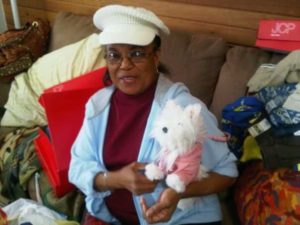
In June of 2015, at the age of seventy-eight, seventeen years after her cancer diagnosis, my mother succumbed to complications of a massive ischemic stroke. As her frail body lamented through its last breaths, I couldn’t help but stare at her breasts, standing tall and proud like a sea captain going down with the sinking ship. Those breasts were real charlatans, able to sustain and take life. These self-defining trophies of femininity provided us with endless slapstick comedy that drove off the vultures feeding on our vulnerabilities.
Knowledge, patience, kindness, and transparency helped our family better understand the manifestation of anxiety and depression brought on by cancer. Laughter isn’t a cure for cancer. Nor does it help someone get over it. But it’s a strong narrative for getting through it. Sniggles, giggles, and boisterous gut-busting laughter are the heroes standing up to the cancer bully. Author Mark Twain wrote, “Against the assault of laughter, nothing can stand.” And that, I believe, is part of the panacea for breast cancer and other diseases.
So if your “bosom buddies” betray you, don’t be afraid to poke fun at them. Breasts are funny like that. Laughter can make all the difference in the world. And if Edna’s journey inspires you, please get a mammogram, examine your breasts once a month, and laugh.
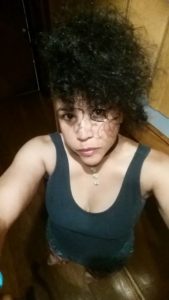
Wendy Holliday-Bledsoe is health care professional and freelance writer. She lives in Denver Colorado with her two children and 3 grandchildren.
A Typical Breast Cancer Team
- Breast surgeon-skilled in operating on breasts.
- Oncologist-a practitioner who diagnosis and treats tumors.
- Plastic surgeon-skilled in reconstructing and repairing the body.
- Oncology nurse-a registered nurse who cares for people with cancer.
- Radiologist-a medical doctor who uses various medical imaging to diagnose and treat injuries and diseases.
DCIS prognoses
“Women diagnosed with DCIS have very good prognoses. Ten years after DCIS diagnosis, 98% to 99% of women will be alive. Based on this good prognosis, DCIS usually is treated by lumpectomy followed by radiation therapy. If the DCIS is large, a mastectomy may be recommended.” Source: BreastCancer.org
Humor Helps
“I was diagnosed with Stage IV Lung cancer while also being a caregiver of my husband, Alan who was dying of kidney cancer. I couldn’t have done it without a sense of humor, patience, and unconditional love.” Source: Laurie Hahn-cancer survivor & caregiver
Dr. Patch Adams Quote
“Remember laughing? Laughter enhances the blood flow to the body’s extremities and improves cardiovascular function. Laughter releases endorphins and other natural mood elevating and pain-killing chemicals, improves the transfer of oxygen and nutrients to internal organs. Laughter boosts the immune system and helps the body fight off disease, cancer cells as well as viral, bacterial and other infections. Being happy is the best cure of all diseases!” Source: RxLaughter
Take Control
- Take Action
- Get information
- Ask questions
- Make informed decisions
- Strengthen your faith and spirituality
Source: Susan G. Komen Foundation
Tags: breast cancer survival, Colorado Cancer Resource Guide
Comments
Leave a Comment
Please be respectful while leaving comments. All comments are subject to removal by the moderator.

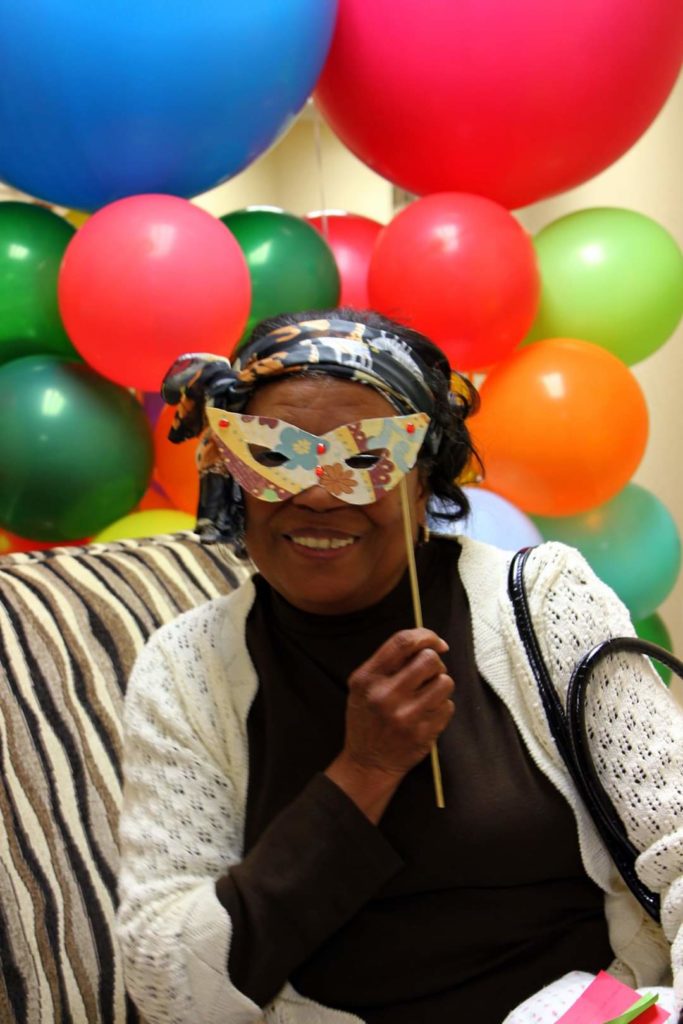
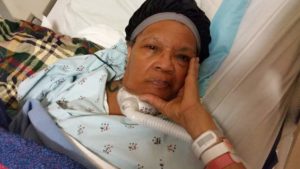
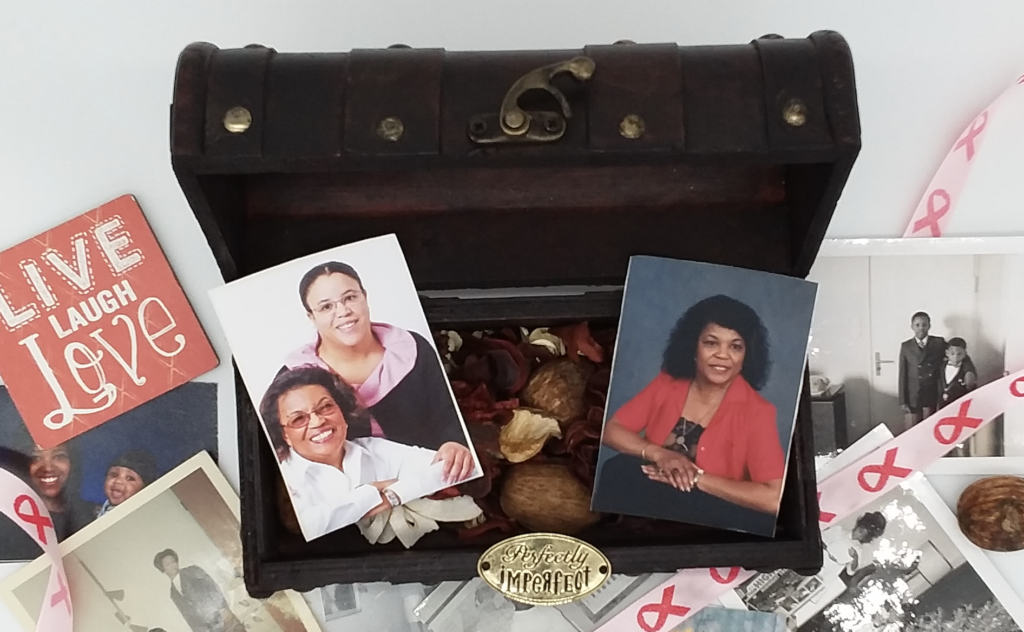
Outstanding outstanding work. Super serious issue done with perfection & humor.
I loved this article. It made me laugh and cry and feel like I was right by Edna’s side throughout her story. I appreciate how the author was serious and humorous at the same time. Well done!